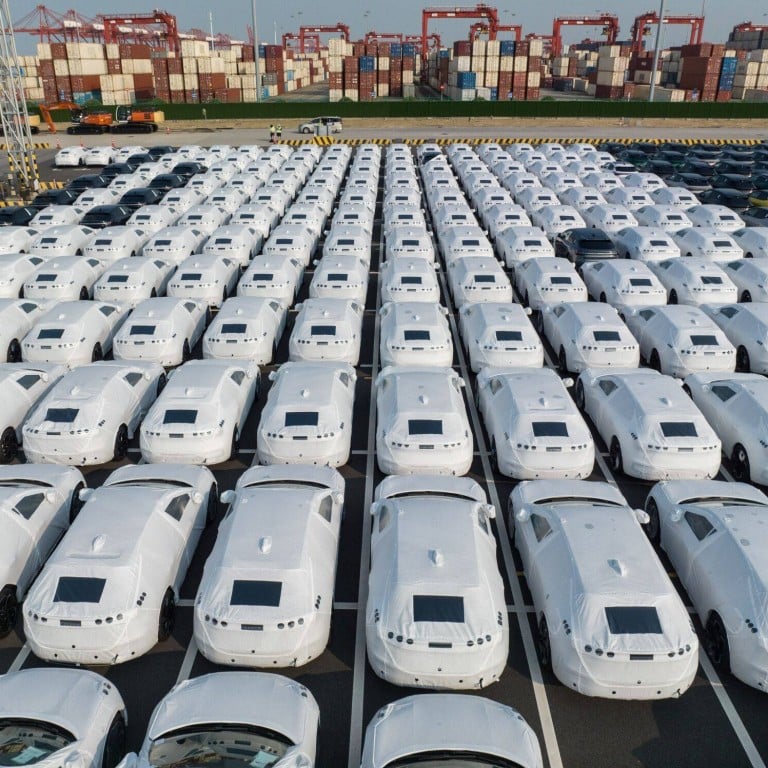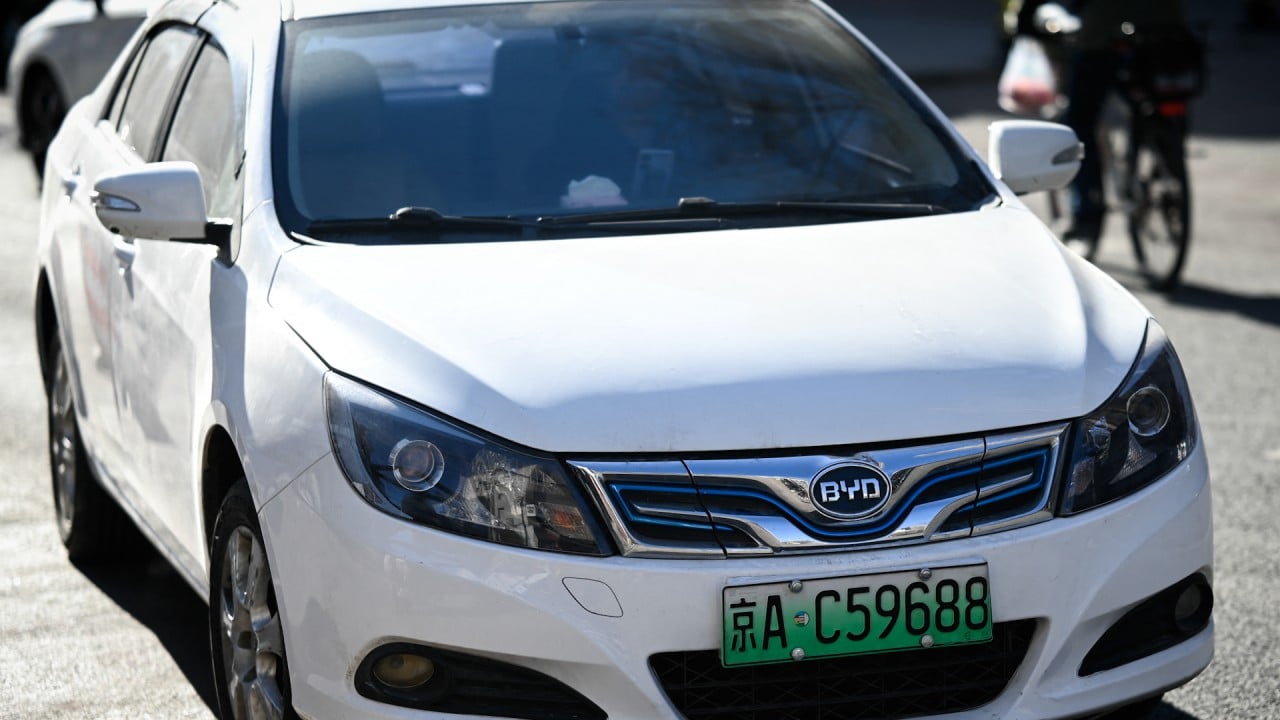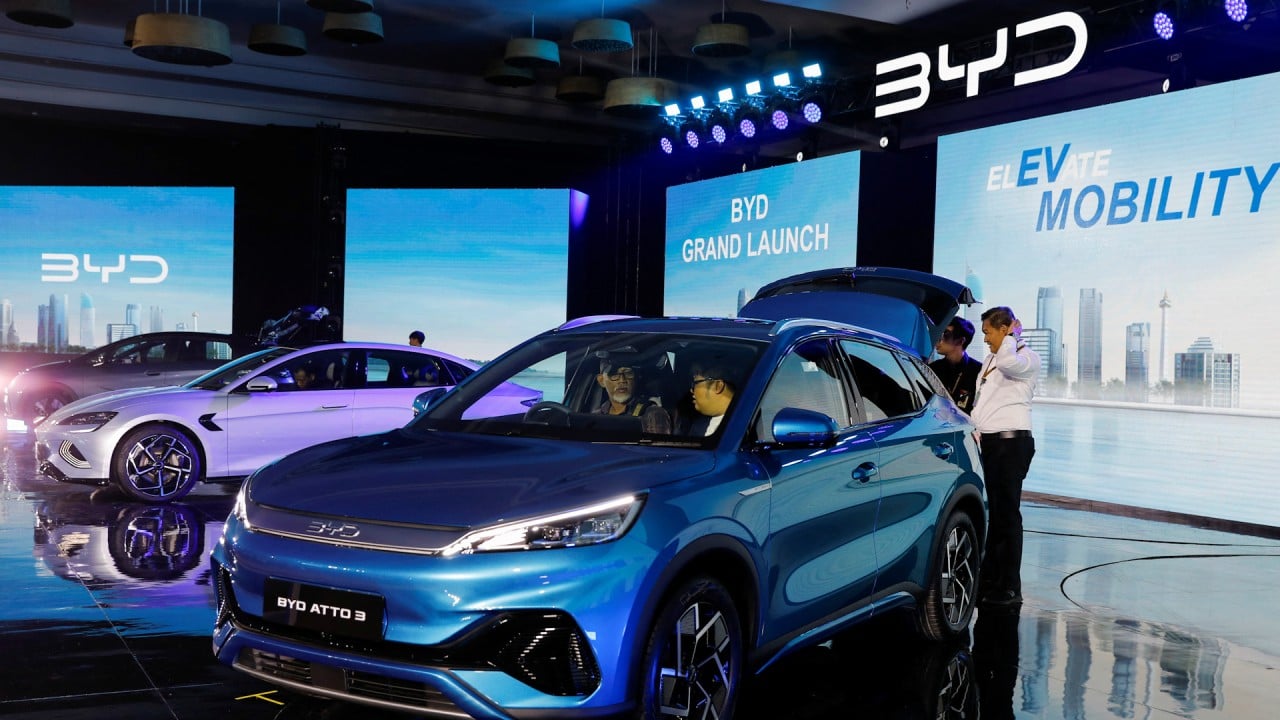
EU moves to slap retroactive tariffs on electric vehicles from China
- Vehicles imported before the probe is concluded could be slapped with anti-subsidy duties
- The China Chamber of Commerce to the EU voiced disappointment, saying ‘recent surge in Chinese EV imports mirrors the increasing demand’ for EVs in Europe
The move, which was signalled in a document bearing the stamp of European Commission President Ursula von der Leyen published on Tuesday night, means vehicles imported before the probe has concluded could be slapped with anti-subsidy duties.
It can be viewed as a way to deter imports, which the EU says are “massive”, and were 11 per cent higher between October and January compared to before the launch of the investigation.
The document says that if the EU waited to impose duties, its own manufacturers would “suffer from diminishing sales and reduced production levels if imports continue at the current increased levels”.
It can also be assumed that the commission is satisfied it has enough evidence to put duties on EVs made in China, but wants to expedite the process.
The note, which was published in the EU’s official journal on Wednesday, said that regarding subsidies, “the commission has at its disposal sufficient evidence tending to show that imports of the product concerned from the PRC [China] are being subsidised”.
Either way, the move will further stoke tensions with Beijing, which has reacted angrily to the suggestion that one of its key industries could be subjected to punitive duties in Europe.
The China Chamber of Commerce to the EU (CCCEU) “voiced its disappointment with the proposed mandate”, saying that the “recent surge in Chinese EV imports mirrors the increasing demand for electric vehicles in Europe”.
“We earnestly hope that the European side will effectively safeguard the legitimate rights and interests of Chinese enterprises and establish a fair, impartial and non-discriminatory business environment for them,” read a CCCEU statement.
The EU said overcapacity in China’s economy was leading to a flood of hi-tech goods that could not be consumed domestically because of sluggish demand, hitting its shores.
Europe is viewed as one of the last big, open markets for advanced Chinese goods. In other big markets such as the United States and India, they are commonly subjected to import tariffs or other market access restrictions.
As West wobbles on Ukraine war, China’s envoy kicks off European tour
Following the EU’s probe which was launched last September, Britain is reported to be considering its own investigation into EV subsidies, according to Politico.
As well as electric vehicles, there are concerns in Europe about overcapacity in Chinese industries, ranging from wind turbines and solar panels to lithium batteries, heat pumps and electrolysers.
But overcapacity is just one irritant in a volatile trading relationship.
On Tuesday, EU negotiators reached a provisional agreement on a law to ban goods made using forced labour, which was written with the western Chinese region of Xinjiang in mind, although to keep it compliant with World Trade Organization rules, China is not mentioned in the text.
Last month, Brussels blacklisted three Chinese firms for allegedly flouting its sanctions on Russia by funnelling dual-use goods made in Europe to Russian buyers.
China rails against EU’s train subsidy probe – will relations stay on track?
Meanwhile, statistics released on Monday found the EU’s trade in goods deficit with China fell by 27 per cent last year compared to 2022, to €291 billion (US$315 billion). The 2022 deficit was the highest on record, according to the EU data agency Eurostat, and became another bone of discontent in the relationship.
Telecoms products were the biggest EU import last year, but vehicles showed the biggest growth, soaring 36.7 per cent compared to 2022, Eurostat found.



